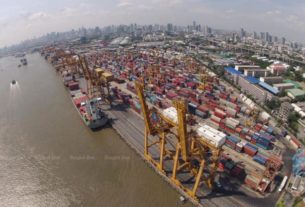The Thai property market has failed to reach the same heights of foreign demand as most Asian markets, with the exception of the Bangkok boom years in the early noughties. Foreigners were responsible for 35% of sales in Bangkok’s business district before the crisis, now this figure is down to 20%.
While this can partially be blamed on the state of the US and European economies and the strength of the Thai baht, another huge reason is the lack of mortgages available for foreign buyers. Unless overseas buyers can pay cash they are unlikely to be able to obtain a mortgage, even those with a hefty deposit cannot get a mortgage.
Part of the reason for this is the 1991 Condominium Act, which states that foreigners can buy up to 49% of a condominium development, but the funds must be transferred from overseas. The Land Department requires non-resident buyers to provide a Foreign Exchange Transaction Form that certifies the transfer of funds from overseas in a foreign currency for the purchase of the property. This form is necessary for ownership to be transferred.
The fact that the transfer must be in a foreign currency makes it impossible for foreigners to obtain mortgages from local banks, as funds are released in Thai baht so the document cannot be issued.
Although in the past some Thai banks have got round this by issuing funds through overseas branches they are not doing this anymore. The law also applies to expatriates working in Thailand, as even though they can get a loan locally they still have to provide 50% of the purchase price from funds overseas. This law makes it impossible for Thailand to compete with other major markets such as Hong Kong and Singapore which have good availability of mortgages for foreign investors.
Source: http://www.ibtimes.com/articles/149578/20110521/thailand-property-held-back-by-20-year-old-law.htm


